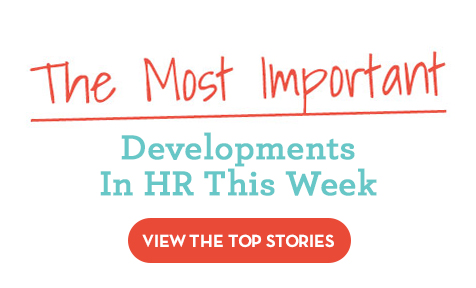
U.S. Representative Alexandria Ocasio-Cortez wasted no time on Thursday in calling Amazon’s decision to scrap plans to build a major New York outpost with nearly $3 billion in city and state incentives a big victory for progressive politicians. The democratic socialist congresswoman has become the face of the Democratic Party’s ascendant left wing, thanks in part to her upset victory last year in a district near the proposed Amazon.com Inc development. Reuters


Tongue-twister headline aside, this story caught our eye, not because Tesla is adding to its board of directors, but because it is adding a CHRO. Kathleen Wilson-Thompson, exec VP and global CHRO for Walgreens Boots Alliance, Inc., is joining Tesla’s board, the latest in a string of CHROs being called upon to serve on U.S. corporate boards. Why the trend? Consider recent brand-weakening headlines, like Musk’s meltdown while Tesla’s CHRO was on leave, issues related to #MeToo, diversity, pay equity, the tight labor market, the absolute importance of a strong employer brand, and positive corporate culture. These issues are dominating the headlines and they’re all in HR’s wheelhouse. Having directors with HR experience can help a board to right the ship when these issues create brand-damaging headlines. Workforce


In the wake of a layoff of more than 220 people, BuzzFeed employees announced on Tuesday they are forming a union to address unfair pay disparities, mismanaged pivots and layoffs, weak benefits, skyrocketing health insurance costs, diversity and more. The idea has been simmering since 2015, but it caught fire after the recent layoffs and subsequent announcement that the company would not compensate exiting employees for their unused PTO unless laws in their state of residence required it. More than 600 BuzzFeed employees signed a letter to owner Jonah Peretti saying, basically: “Not cool!” and that decision was reversed, but the damage to BuzzFeed’s internal brand had already been done, hence distrustful remaining employees agreeing on the need to unionize now. They’re not the only ones. Some 30 digital news sites and newspapers have formed unions since 2015, and according to HBR, the number of unionized workers in internet publishing has risen 20-fold in the past decade. The New York Times


Interesting think piece in the Economist this week about the rise of socialism among millennials, led in large part by Alexandria Ocasio-Cortez, the newly elected New York Congresswoman who is skewing her followers to the hard left. Gallup tells us some 51 percent of millennials have a positive view of socialism, and during the last election’s primaries, more young people felt the Bern than voted for Hillary and Donald combined. You have to wonder how this trend is going to affect our millennial-rich workplaces. The Economist theorizes it will lead to millennials pushing for more workers on boards, greater control at the employee rank-and-file level, and more suspicion and distrust of the powers that be. Hmmm. Sounds a little like what’s going on at BuzzFeed, and other digital news organizations, right now. The Economist


Ah, the slippery slope of medical marijuana and employer drug testing. This week, a federal judge ruled against Walmart in a lawsuit for firing an Arizona employee. The eight-year Walmart worker uses marijuana at night for arthritis pain — completely legal in her state — yet was fired after a drug test came back positive. Of course it would, so why test at all? Drug testing is protected in AZ by the state’s Drug Testing of Employees Act. What is an employer to do here? In the absence of lawmakers not passing competing laws in any given state (good luck with that), HR common sense has to prevail. In companies like Walmart, which operate in every state, and given states have differing laws in terms of not only medical marijuana but legalized marijuana as well, it’s going to be incumbent on HR to draw a sensible line between medical use; recreational, legal use not on the job; and what happens when a drug test comes back positive. We see a lot of gray area (and more potential lawsuits) here. The Hill


REI CEO Jerry Stritzke announced his resignation this week because of a consensual personal relationship that appeared to be a conflict of interest. The relationship was with someone at the helm of an organization in the outdoor industry and, instead of telling the REI board about it, they kept it on the down-low. That’s the real problem here. An investigation didn’t find any financial improprieties. The issue was: The perception of conflict of interest and the lack of transparency flies in the face of the REI employer brand. REI has actively sought to show its commitment to employers, customers, and community rather than profits and has long aligned its reputation with transparency. By all accounts Stritzke was doing a great job as CEO, so this swift action shows the importance of brand and perception for both employees and customers. Seattle Times










